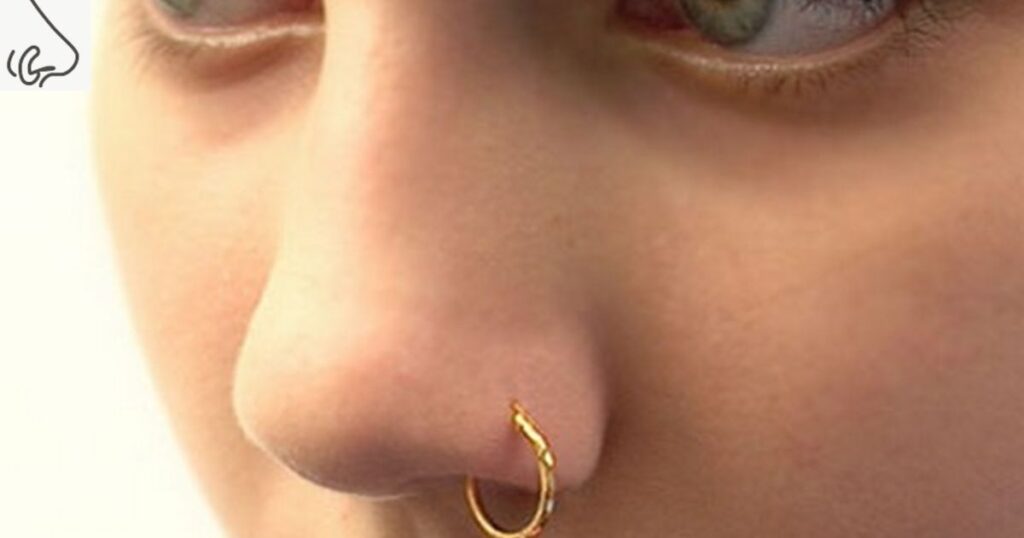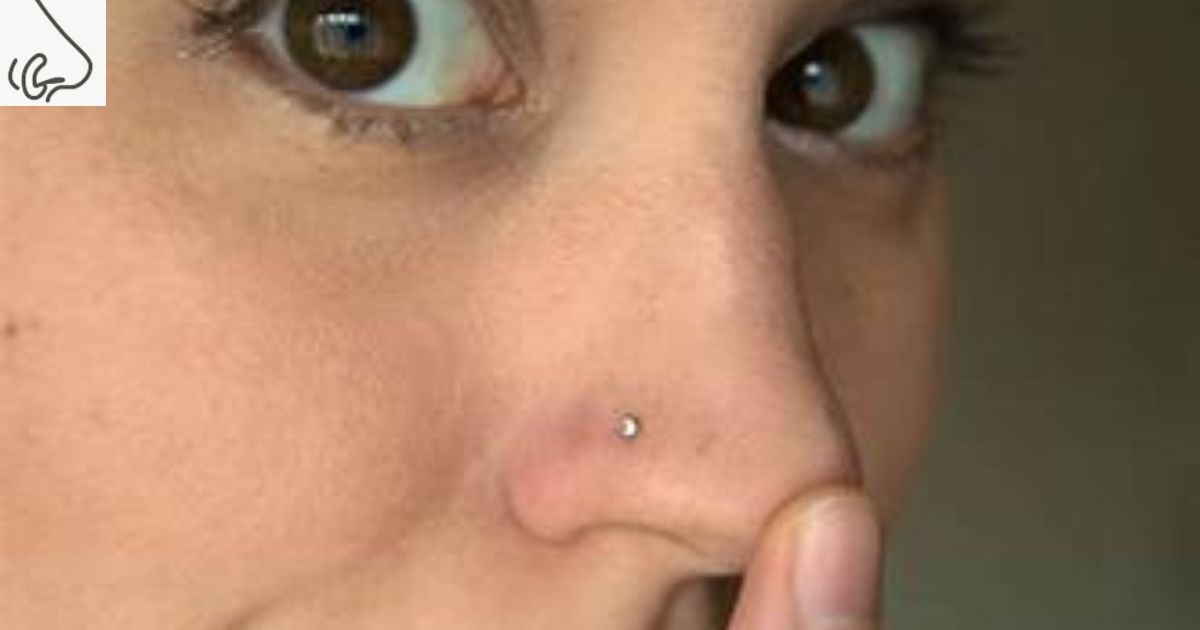Nose piercings are a popular form of self-expression and have been embraced by many individuals worldwide. However, sometimes, even after years of having a nose piercing, an unpleasant odor may arise. In this comprehensive guide, we will delve into the reasons why your nose piercing may develop an odor after two years, providing insight into common causes and effective solutions.
Table of Contents
- Nose Piercing 101
- The basics of nose piercings
- Piercing healing process
- Common jewelry materials
- Why Does My Nose Piercing Smell?
- Bacterial growth
- Dead skin cells and debris
- Jewelry-related factors
- Preventing Odor in a Nose Piercing
- Proper cleaning and aftercare
- Suitable jewelry choices
- Lifestyle and environmental factors
- Managing Smelly Nose Piercings
- Home remedies for odor control
- Seeking professional advice
- Lifestyle changes
- When to Consult a Piercer or Doctor
- Persistent or worsening odor
- Signs of infection
- Allergic reactions
- Conclusion
- The importance of aftercare
- Enjoying a fresh and odor-free nose piercing
Nose Piercing 101
Before we dive into why your nose piercing may develop an odor, it’s essential to understand the basics of nose piercings. A nose piercing typically involves creating a small hole in the nostril or septum to allow the insertion of jewelry. The healing process can take several months, and the choice of jewelry material plays a crucial role in the overall experience.
Why Does My Nose Piercing Smell?
1. Bacterial Growth
One common reason for a smelly nose piercing is the growth of bacteria in and around the piercing area. Bacteria are present on our skin, and when combined with sweat, oils, and other substances, they can lead to an unpleasant odor. In some cases, bacterial infection can also occur, causing an even stronger odor and other symptoms such as redness and swelling.
2. Dead Skin Cells and Debris
Over time, dead skin cells and debris can accumulate around the jewelry, creating a favorable environment for bacteria to thrive. This buildup can be challenging to remove with regular cleaning, leading to persistent odor issues.
3. Jewelry-Related Factors
The type of jewelry used in your nose piercing can also contribute to odor problems. Some materials, like low-quality metals, can react with your skin, resulting in a foul smell. Additionally, jewelry with intricate designs or crevices can trap bacteria and debris, making it difficult to maintain cleanliness.
Preventing Odor in a Nose Piercing
Preventing odor in a nose piercing is possible with the right approach.
Proper Cleaning and Aftercare
Numb Your Nose for Piercing is crucial, especially during the initial healing period. Regular cleaning and proper aftercare are essential. Cleaning the area with saline solution and avoiding harsh chemicals or excessive touching can help maintain cleanliness and prevent bacterial growth.
Suitable Jewelry Choices
Opt for high-quality jewelry made from materials like surgical steel, titanium, or niobium. These materials are less likely to react with your skin or trap debris. Simple jewelry designs with smooth surfaces are easier to clean and maintain.
Lifestyle and Environmental Factors
Consider your lifestyle and environment. Factors like excessive sweating, exposure to dirty or dusty environments, and wearing clothing that constantly rubs against your piercing can all contribute to odor issues. Making necessary adjustments can help reduce these factors.
Managing Smelly Nose Piercings

If you’re already experiencing odor issues with your nose piercing, there are steps you can take to address the problem.
Home Remedies for Odor Control
- Saline Soaks: Soaking your piercing in a saline solution can help loosen debris and cleanse the area.
- Tea Tree Oil: Applying diluted tea tree oil to the area can have antibacterial properties.
- Warm Compresses: Warm, clean compresses can help reduce inflammation and encourage drainage.
- Oral Probiotics: Some individuals have found success in taking oral probiotics to help balance the body’s bacteria.
Seeking Professional Advice
If home remedies do not resolve the issue, consult your piercer or a healthcare professional. They can assess the situation and recommend appropriate treatments or changes in jewelry.
Lifestyle Changes
Evaluate your daily routine and environment to identify potential sources of odor. Making lifestyle adjustments can significantly improve the situation.
When to Consult a Piercer or Doctor
| Table of Contents |
| Nose Piercing 101 |
| – The basics of nose piercings |
| – Piercing healing process |
| – Common jewelry materials |
| Why Does My Nose Piercing Smell? |
| – Bacterial growth |
| – Dead skin cells and debris |
| – Jewelry-Related Factors |
| Preventing Odor in a Nose Piercing |
| – Proper cleaning and aftercare |
| – Suitable jewelry choices |
| – Lifestyle and environmental factors |
| Managing Smelly Nose Piercings |
| – Home remedies for odor control |
| – Seeking professional advice |
| – Lifestyle changes |
| When to Consult a Piercer or Doctor |
| – Persistent or worsening odor |
| – Signs of infection |
| – Allergic reactions |
| FAQs |
| – Why does my nose piercing develop an odor over time? |
| – How can I prevent my nose piercing from smelling? |
| – What should I do if my nose piercing smells despite cleaning? |
| – When should I consult a piercer or doctor about my smelly nose piercing? |
| – Is it possible to enjoy an odor-free nose piercing after two years? |
| Conclusion |
| – Enjoying an odor-free nose piercing after two years is possible with proper care and maintenance. Remember that good aftercare practices, suitable jewelry choices, and awareness of your lifestyle and environment are key factors in preventing and managing odor issues. Your nose piercing should continue to be a stylish and expressive form of self-adornment without the hassle of unwanted odors. |
Persistent or Worsening Odor
If the odor from your nose piercing persists or worsens, it’s essential to seek professional advice. This could be a sign of an underlying issue that requires attention.
Signs of Infection
Watch out for signs of infection, such as redness, swelling, increased pain, and discharge. If any of these symptoms are present, consult a healthcare professional promptly.
Allergic Reactions
If you suspect that you are experiencing an allergic reaction to your jewelry, consult your piercer to explore alternative materials or designs.
FAQs
- Why does my nose piercing develop an odor over time?
- Nose piercings can accumulate bacteria, dead skin cells, and other debris, leading to an unpleasant smell.
- How can I prevent my nose piercing from smelling?
- Proper cleaning, suitable jewelry, and awareness of lifestyle factors can help prevent odor.
- What should I do if my nose piercing smells despite cleaning?
- If cleaning doesn’t resolve the issue, consider home remedies or consult a professional piercer.
- When should I consult a piercer or doctor about my smelly nose piercing?
- Persistent odor, signs of infection, or suspected allergic reactions warrant professional evaluation.
- Is it possible to enjoy an odor-free nose piercing after two years?
- Yes, with diligent aftercare and suitable jewelry choices, you can maintain a fresh and stylish nose piercing.
Conclusion
Enjoying an odor-free nose piercing after two years is possible with proper care and maintenance. Remember that good aftercare practices, suitable jewelry choices, and awareness of your lifestyle and environment are key factors in preventing and managing odor issues. Your nose piercing after 2 year should continue to be a stylish and expressive form of self-adornment without the hassle of unwanted odors.



















